
By Freya Strutt, Nutritionist (ANutr) @struttyourlife
For those interested in sustainability, it will be no surprise that reducing society’s meat consumption could have dramatic impacts on our health, environment, and society. Given the risks and impacts of climate change of which are problems governments are already increasingly facing, it would be beneficial to encourage a reduction in meat consumption. The title of how to reduce meat consumption without starting a riot may seem hyperbolic, however, the removal of freedom to consume meat, is unlikely to be popular. Plant-based products, recipes, and meals out are accessible across the Western world, but many people still consume too much meat. The trick, therefore, is to find a way to get people to want to reduce their meat consumption.
Effect of Meat on Health
As many of us are aware, meat is a source of iron, zinc, vitamin B12, protein, and fat. However, these nutrients can first be obtained elsewhere, and second, meat is also a dense source of salt and saturated fat. In 2015, the International Agency for Research on Cancer made global headlines by stating that [red and processed] meat caused cancer due to its carcinogenic properties. They concluded that for each 50g portion of processed meat consumed, the risk of colorectal cancer increases by 18%. It is also well-known that high meat consumption is associated with cardiovascular disease and diabetes. The economic burden of diseases associated with the high consumption of red and processed meat is estimated to be $285 billion globally. Unfortunately, as we know, the public is often resistant to health messaging, so campaigns for reducing meat consumption for health alone are unlikely to lead to a significant reduction. Interestingly, some evidence suggests that high red and processed meat consumption is associated with an increased risk of erectile dysfunction. Given the importance of sex for reproduction and intimacy with a partner, this could also be a significant reason to reduce meat consumption.
Effect of Meat on the Environment
Many people are aware that high meat production is harmful to the environment. Meat production contributes 14.5% to greenhouse gas emissions. One study modelled that if everyone went vegetarian, emissions could reduce by up to 70%. However, it is not just the emissions which pose a problem, meat production is often an inefficient use of resources. Producing just 1 kg of beef requires 2.8 kg of fertiliser and pesticides, 100 m3 of water, 3 litres of fuel, and 283 m2 of land. It also produces 105 kg of animal waste and 7.6 kg of inedible by-products which often end up in rivers and can lead to eutrophication and the polluting of water ecosystems. Whilst technology can help reduce these inefficiencies, it is unlikely that it will develop fast enough to negate these issues. The other predominant problem of animal rearing is the land which is often cleared to provide the space for animals to graze and grow crops to feed them. Though changes in land use are not exclusive to agriculture, it is a significant factor that has led to a 30% loss of biodiversity. Irrespective of the predicted growth in the global population, if the current population increases its meat consumption, it is likely that the effects will be devastating to the current environment.
Effect of Meat on Society
Meat production is also associated with significant societal issues. First is the unavoidable link between meat production and the acceptability of violence. For example, the ‘Sinclair effect’ explains how slaughterhouse workers become desensitised to violence and is thus associated with violent and sex-related crimes in communities. Additionally, slaughterhouse workers are significantly more likely to have lower mental well-being and are increasingly likely to suffer from depression, anxiety, and post-traumatic stress disorder. The meat industry is also a vast user of undocumented migrant workers who are often underpaid and poorly treated. Second are the diseases which arise from intensively rearing and keeping animals, such as the BSE crisis, Swine Flu, and most recently, the global pandemic of Covid-19. All of these have cost countless lives and had devastating effects on economies. Unfortunately, these diseases are considered inevitable whilst intensive animal rearing continues. Should however animals be reared less intensively, it would likely reduce the cross-over of human-animal disease.
Problems in Reducing Meat Consumption
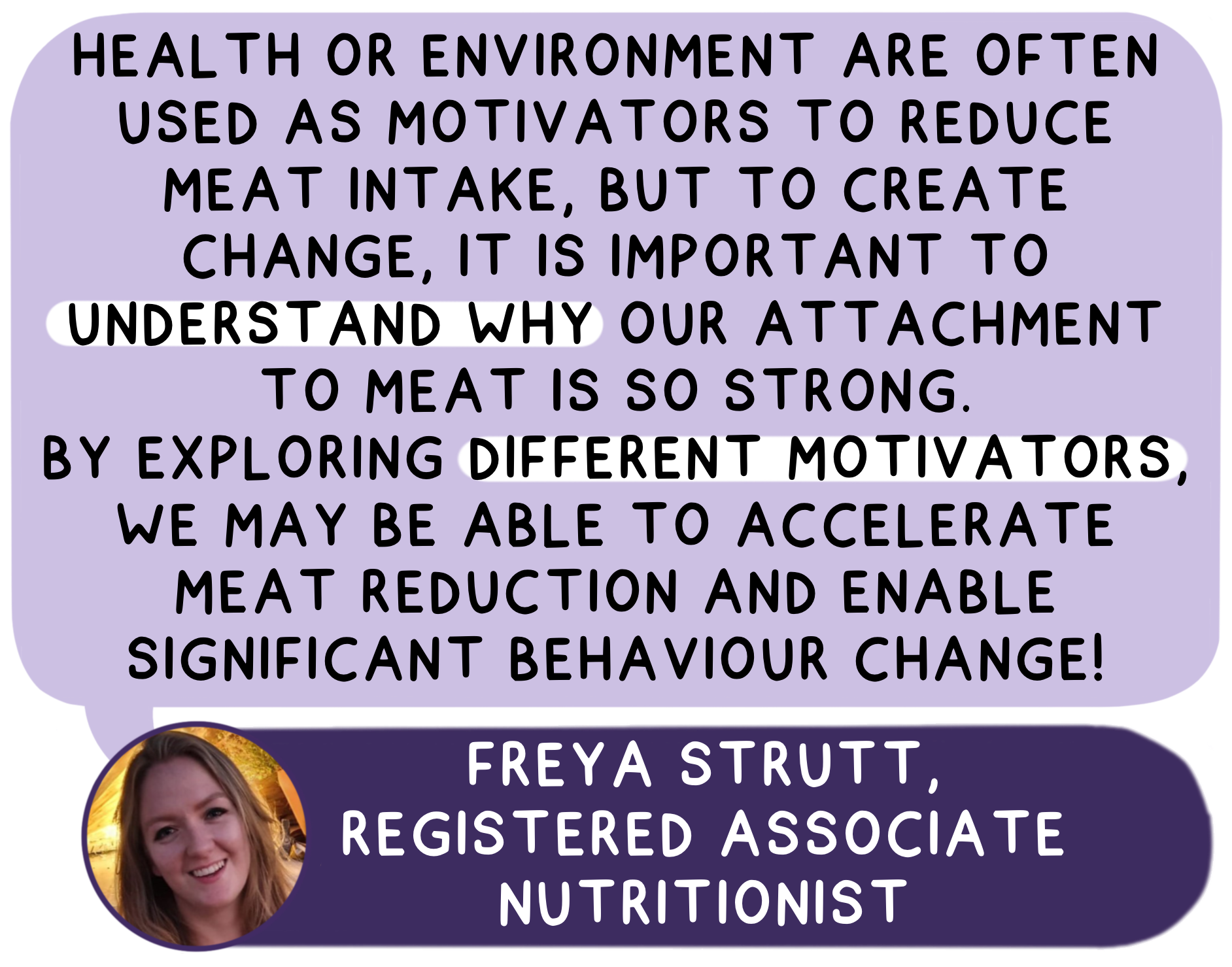 The problems previously mentioned of high meat production or consumption (more than 500 g of red and processed meat per week) are increasingly falling at politicians’ doors. Eating habits are considered individual, however, they are highly manipulated by governments and businesses, such as through prices or advertising. Nevertheless, the government weighing in on food choices can sometimes be seen as quite controversial and contributing to a “nanny state”. To overcome this, it is important to understand meat consumers and why they are reluctant to reduce their consumption. When investigating meat consumers, it was found that men consume significantly more meat than women and are also more likely to be averse to vegetarian diets. Therefore, where resources may be limited and it is important to focus on a particular group rather than the masses, it could prove more effective to focus specifically on men than women.
The problems previously mentioned of high meat production or consumption (more than 500 g of red and processed meat per week) are increasingly falling at politicians’ doors. Eating habits are considered individual, however, they are highly manipulated by governments and businesses, such as through prices or advertising. Nevertheless, the government weighing in on food choices can sometimes be seen as quite controversial and contributing to a “nanny state”. To overcome this, it is important to understand meat consumers and why they are reluctant to reduce their consumption. When investigating meat consumers, it was found that men consume significantly more meat than women and are also more likely to be averse to vegetarian diets. Therefore, where resources may be limited and it is important to focus on a particular group rather than the masses, it could prove more effective to focus specifically on men than women.
When investigating why men are often more attached to meat than women, research has shown that meat consumption significantly contributes to masculine identity and expression. So much so, that for some men, reducing their meat consumption equates to reducing their masculinity, consequently, there would need to be a significant and personally motivating reason. Moreover, meat consumption is often linked with sexuality and sexual function. Studies show that Western male fertility rates are on the decline, as well as there being an increase in erectile dysfunction in young people. Interestingly, there is increasing evidence to show that high meat consumption is associated with an increased risk of developing erectile dysfunction. Given the importance of sexuality and sexual function both personally and socially, it begs the question, if people were made aware of this link, would this be a strong enough reason to reduce meat consumption?
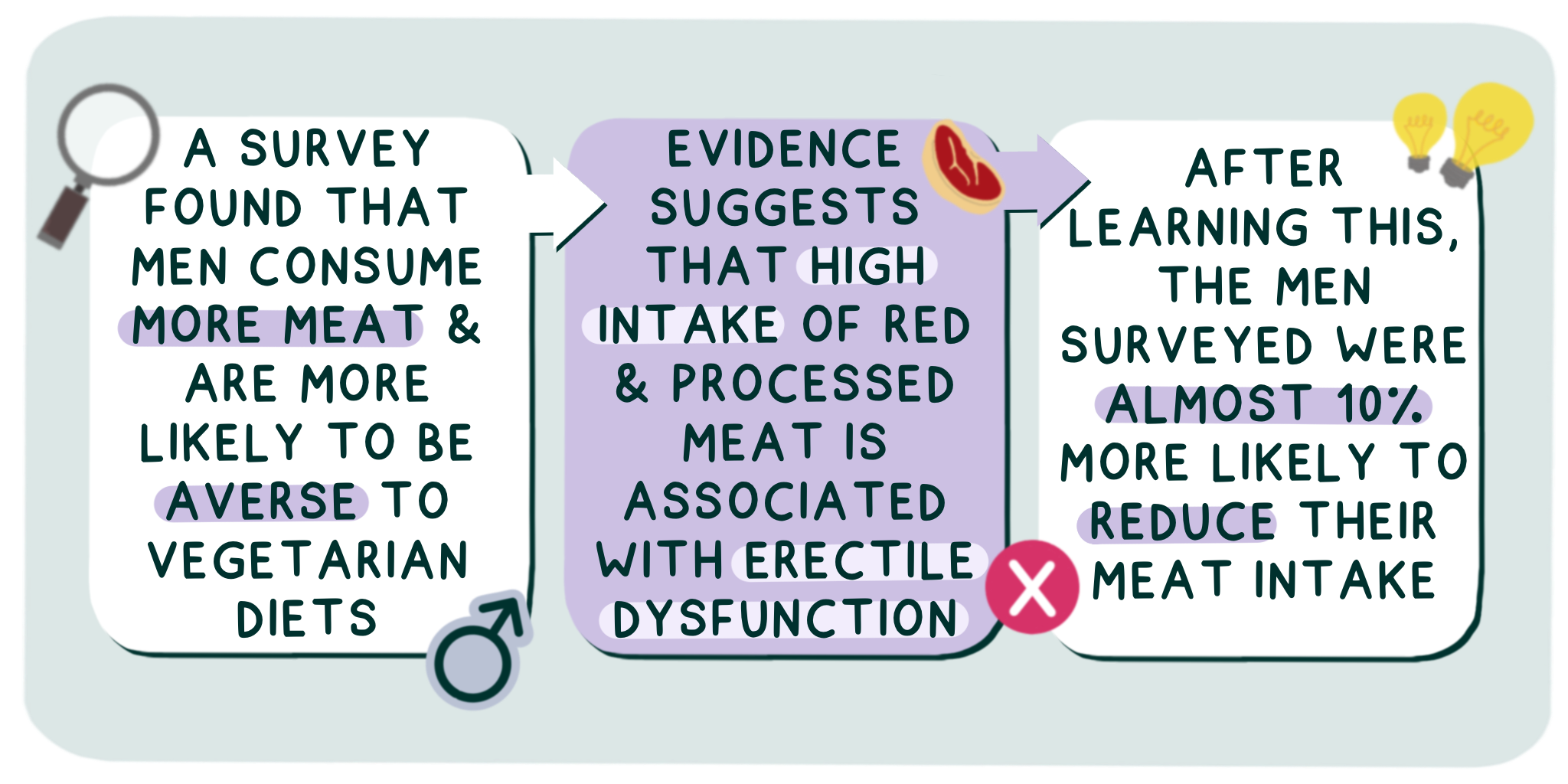
My Master’s Study
Given that this link had not been previously researched, it was important to understand whether there could be any substance in it. Participants recruited online were asked questions about their consumption patterns, views on their meat intake, and finally their intentions to reduce their meat consumption. They were then made aware of the government recommendations for meat consumption and the link between high red and processed meat consumption and erectile dysfunction. They were then asked again about their intentions to reduce their meat consumption as well as further opinion-based questions. The results showed that after being provided with information on this link, participants, especially men, were significantly likely to have a higher intention to reduce their meat consumption. Participants also stated that they felt that this information should be included in public health campaigns.
When discussing meat reduction, policymakers can create policies to ban, penalise, or advise. Studies have shown that attachment to meat is still strong and so banning or even penalising meat consumption could be politically difficult. Therefore, policymakers must increase educational campaigns which could help reduce this attachment. Given the importance of sexual function both individually and socially, the information from this study could prove useful to add to the growing educational information to reduce meat consumption. Many people are often in the process of reconsidering their meat consumption for environmental, health, or ethical reasons and therefore this could be an additional, if not motivational reason.
Here are some of the findings, highlighting the intention to reduce meat consumption vs gender:
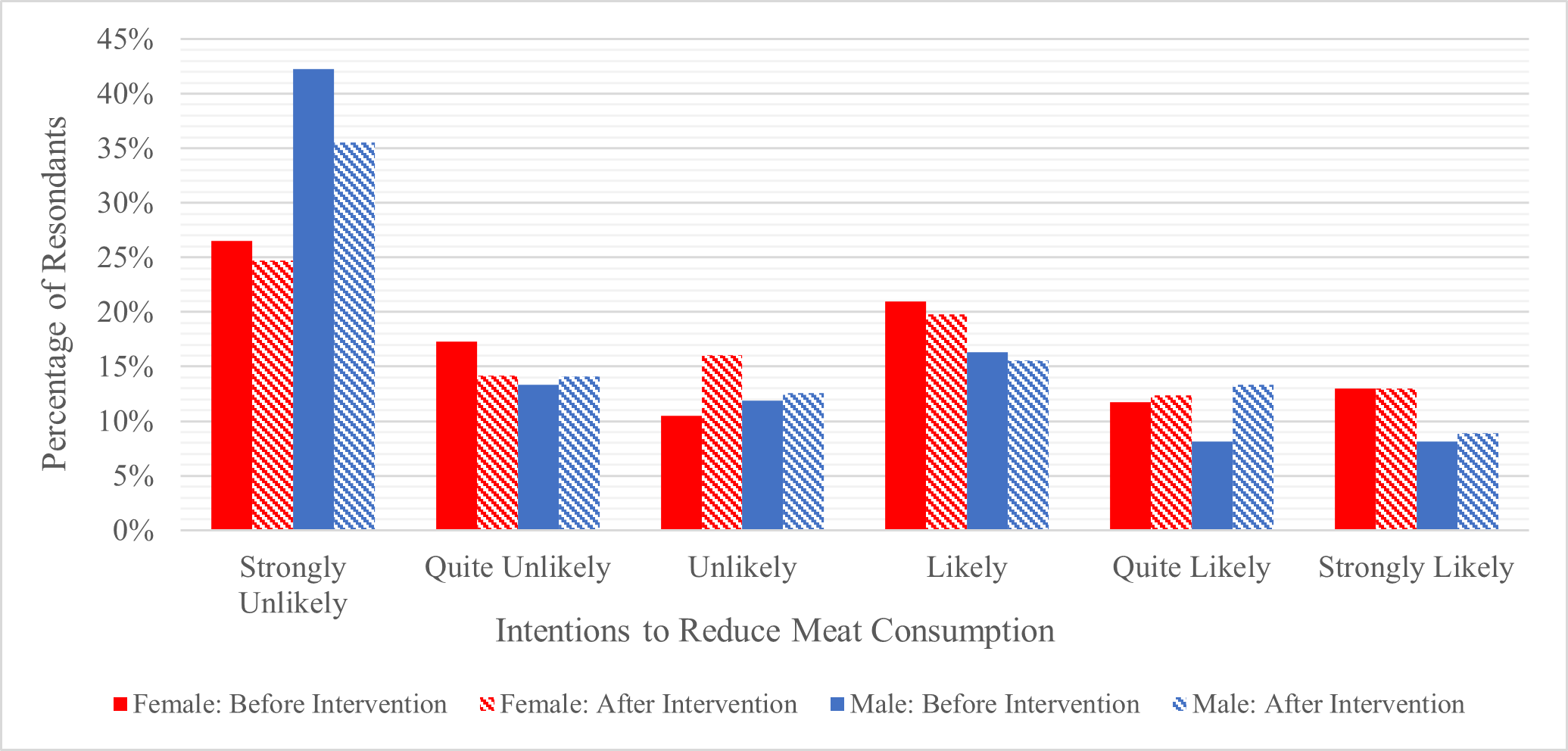
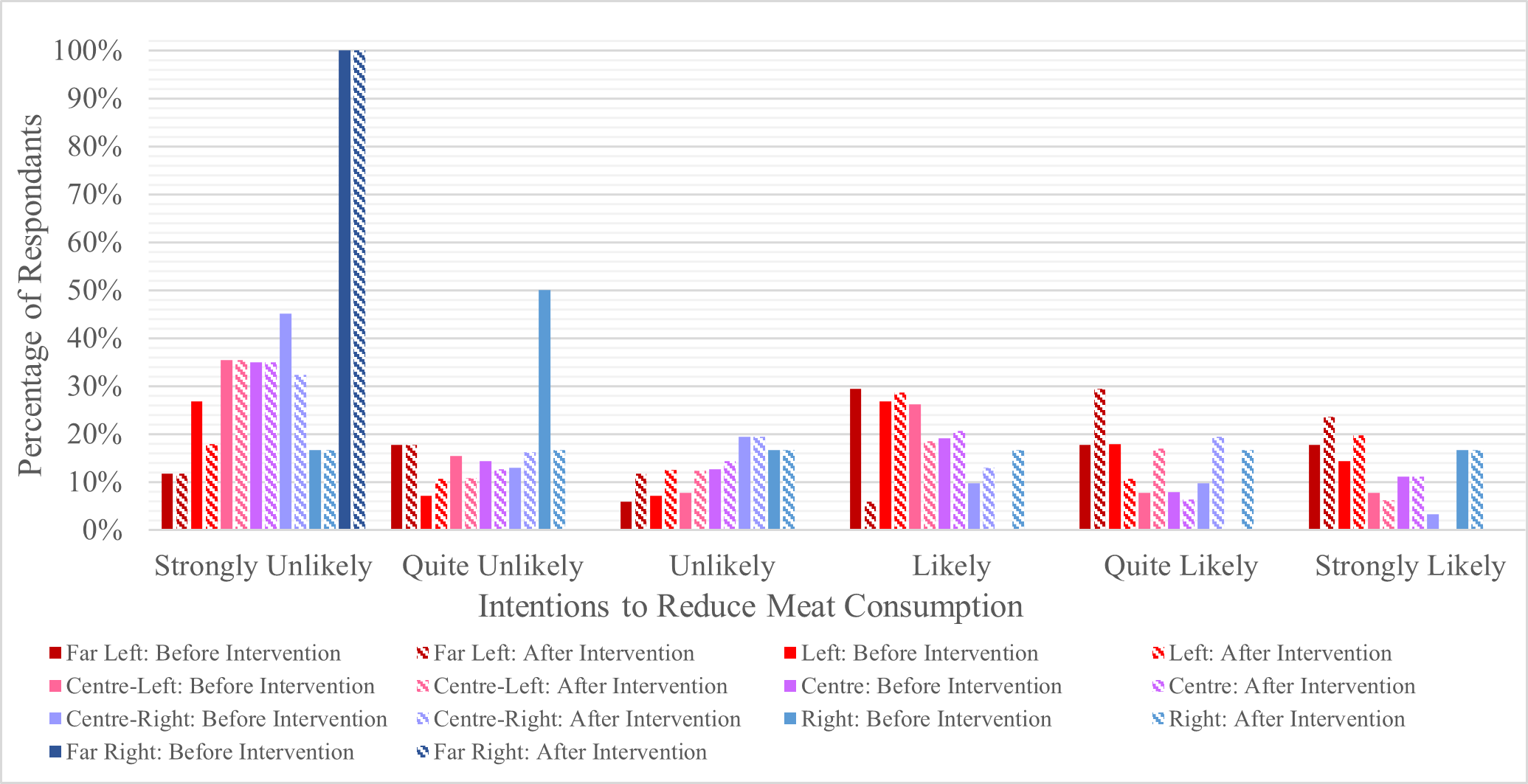
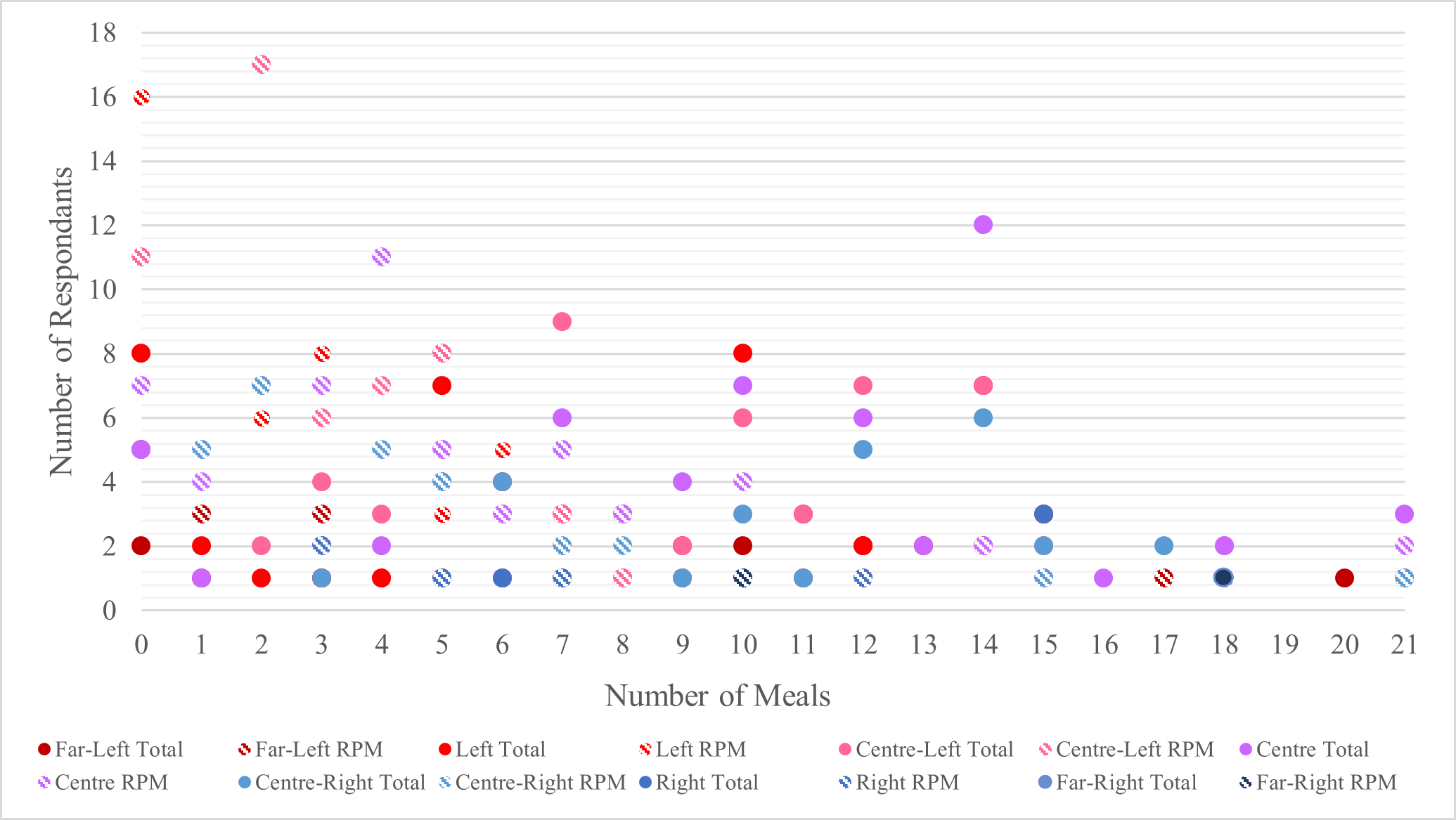
Conclusion
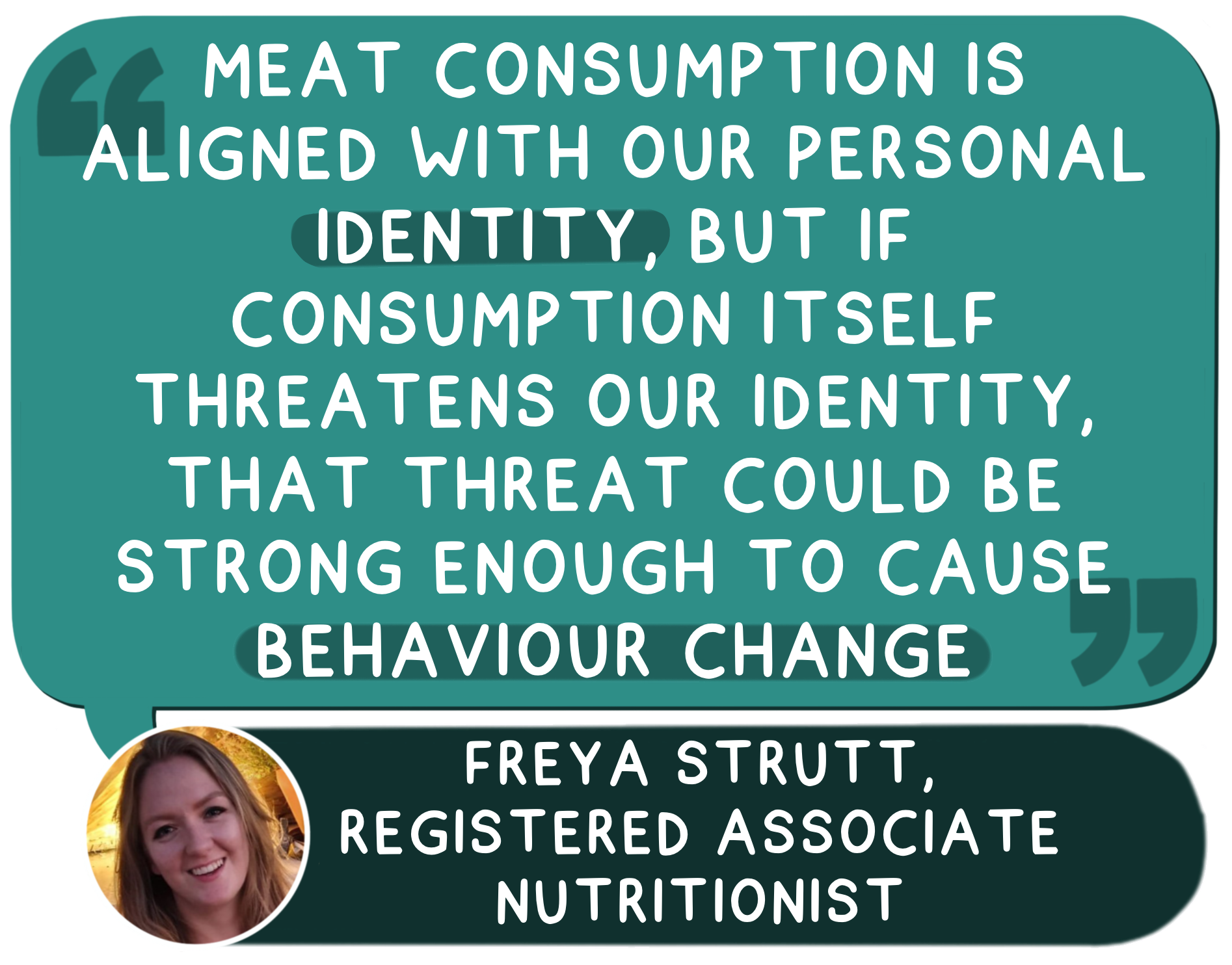 Finally, it is important to reiterate, that this work was not about convincing the world to go vegetarian or vegan, meat production and animal rearing contribute to economies and livelihoods across the world. However, it is clear that current levels of meat consumption in the west, are not sustainable and will not be able to be sustained going forward without significant consequences. Whilst the information on the link between high meat consumption and erectile dysfunction may not exclusively encourage meat reduction, it could significantly contribute to the research in encouraging behaviour change.
Finally, it is important to reiterate, that this work was not about convincing the world to go vegetarian or vegan, meat production and animal rearing contribute to economies and livelihoods across the world. However, it is clear that current levels of meat consumption in the west, are not sustainable and will not be able to be sustained going forward without significant consequences. Whilst the information on the link between high meat consumption and erectile dysfunction may not exclusively encourage meat reduction, it could significantly contribute to the research in encouraging behaviour change.
Full list of References


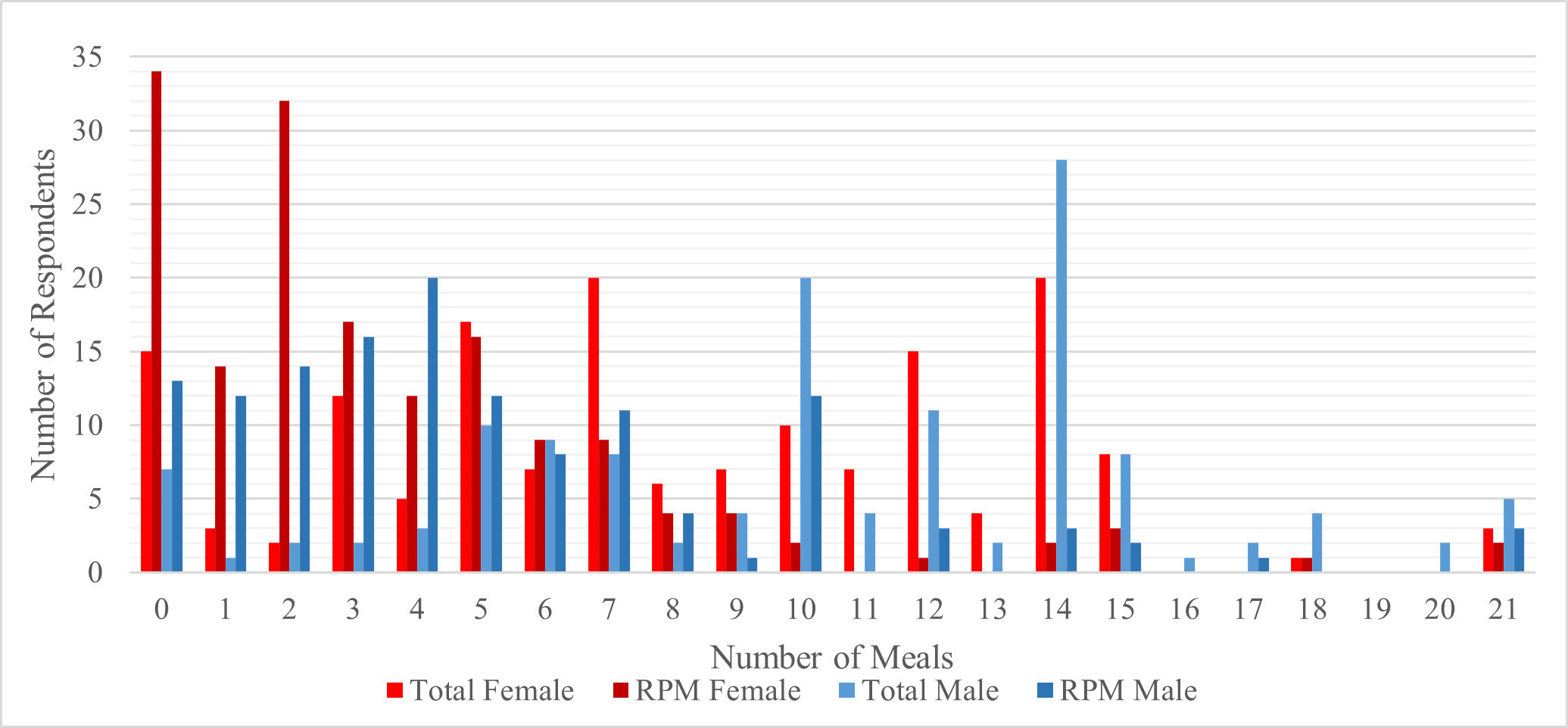





In text references needed. This is a very one-sided article, clearly of someone pro-vegetarian. Meat production not properly compared with all the highly processed plant products, which is mostly also high in saturated fat and salt.
I checked some of the references and the association between healthful plant based diet index and ED is not a strong association (OR 0.98, Carto 2022), and there is NO association between plant based diet index and ED, which means the “healthful” is the key factor. I also do not see any meta-analyses in the references, which I would say is required before you present the public with information that red meat consumption is associated with ED.
Thank you for your comment. We will feed this back and also ensure to add the in text references as soon as possible.